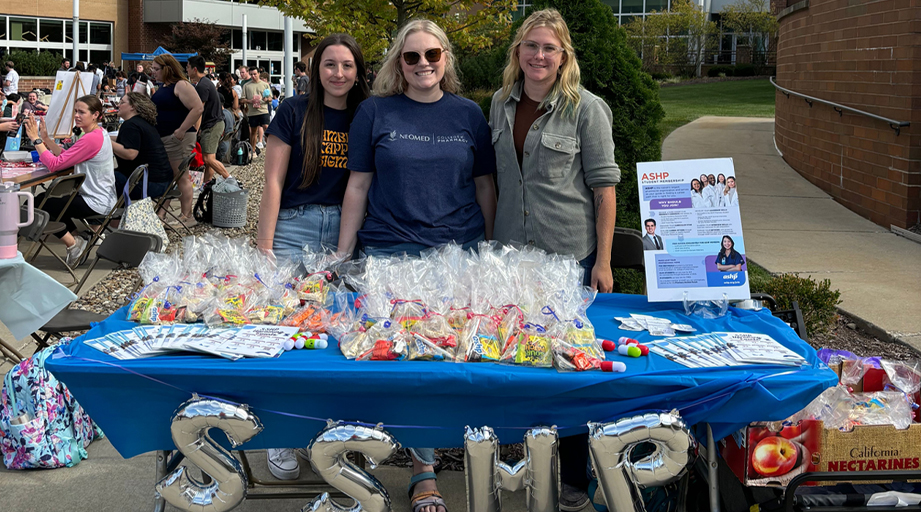
A new guidance document from FDA creates a path for a hospital or health system to compound patient-specific products and also register as an outsourcing facility that compounds sterile drug products in accordance with Current Good Manufacturing Practice (CGMP) regulations.
Registration as an outsourcing facility could appeal to hospitals and health systems that need to support distant clinics, said Mark Sullivan, executive director of inpatient and clinic pharmacy operations for Vanderbilt University Hospital and Clinics, based in Nashville.
Also appealing is the opportunity to compound batches larger than the health system anticipates distributing in 30 days and to compound batches of controlled substances offsite from where they will be administered, said Dave Webster, associate director of pharmacy operations for the University of Rochester Medical Center in New York.
The guidance, issued on May 10, is FDA’s interpretation of a phrase in the 2013 Drug Quality and Security Act: “The term ‘outsourcing facility’ means a facility at one geographic location or address.”
Practically speaking, both traditional and outsourcing facility compounding can occur “under the same roof” if those activities are not conducted using shared rooms or equipment and if there is no pass-through between the compounding sites, said Lindsay Ford Adams, program director for sterile products compliance at Vanderbilt University Hospital and Clinics.
“You would have to have permanent divides, such as walls or doors that don’t necessarily open to make sure that that physical divide is maintained, in order to be able to do both . . . in one building,” Adams said in paraphrasing the guidance.
FDA had earlier, with regard to regulating an outsourcing facility, wanted to consider all compounding activities “at the same street address, or in the same building, or in buildings located in close proximity to one another” as subject to CGMP regulations.
That interpretation of the term outsourcing facility, ASHP stated in comments to the agency in July 2016, “may limit the number of hospitals and health systems that can, realistically, register” as such a facility.
Indeed, none of the facilities listed at the FDA webpage “Registered Outsourcing Facilities” on June 11 had a name denoting a hospital or health system.
Sullivan said his team has been “watching with interest” as FDA has released draft and final guidances affecting compounding under Section 503A and Section 503B of the Food, Drug, and Cosmetic Act.
Vanderbilt University Hospital and Clinics recently acquired space in a Nashville office park to build a sterile products compounding facility that will support the health system’s clinics, some of which are more than 80 miles away, Sullivan said.
The office park, he said, is already the site of a retail pharmacy where health-system personnel compound sterile drug products.
“We were concerned with that previous version of the FDA interpretation . . . that we would not be able to have [an outsourcing facility] at that location,” Sullivan said. “But this new interpretation appears to allow that.”
The retail pharmacy and the upcoming sterile products compounding facility have the same street address, he said, but different office suite numbers.
Webster said University of Rochester Medical Center operates an offsite compounding pharmacy where a major activity is the batch production of drug products for 2 of UR Medicine’s hospitals.
“What we’re realizing is that we can implement a lot of CGMP standards,” he said, such as those regarding environmental monitoring of a cleanroom, training of personnel, and wearing of garb to protect drug products from contamination.
“And that is what we’re doing in a 503A [traditional compounding] operation,” Webster said. “We like to creatively call it 503A-plus and do things that make sense from a quality assurance [standpoint]. . . . We think that’s the best way to do these things.”
However, justifying expenditures to comply with all the CGMP regulations applicable to an outsourcing facility and also register annually with FDA is a struggle, he said.
The basic question, he said, is “Are we going to get a better product for the investment, which is pretty significant?”
A 2-year-old draft guidance specific to hospitals and health systems remains a concern, however.
FDA in 2016 announced it wanted to place a 1-mile limit on the distance within which a compounding pharmacy operated by a hospital or health system may distribute products without first receiving a patient-specific prescription or medication order.
Adams noted that Vanderbilt University Hospital and Clinics has over 200 clinics, not all of which need compounded sterile products, and that FDA’s final decision on a proximity limit will greatly influence her health system’s decision on whether to have an outsourcing facility.
Webster said that the offsite compounding pharmacy that serves University of Rochester Medical Center is within 6 miles of the campus’s main hospital and has a separate address. That hospital receives 85% of what the offsite compounding pharmacy produces, he said. Creating a similar facility on the hospital’s grounds would have been both cost and space prohibitive, however.
“Everything we transport is tracked for temperature in transit [and] in storage,” Webster said. “And we know the biggest issues aren’t so much the transport; it’s where stuff sits in a hospital when it’s delivered.”
Sullivan said his team plans for the office park–based sterile products compounding facility to be registered as a pharmacy but designed the space so that it can be registered as an outsourcing facility if needed.
“Until the rules are a little bit more clear, we would prefer to not have to go through the FDA registration,” he said.
The May 10 guidance addresses ASHP’s concerns “to a certain extent,” said Jillanne Schulte Wall, director of federal regulatory affairs.
She noted that ASHP has many more concerns about FDA’s framework for regulating compounding activities that still need to be addressed.
[This news story appears in the July 15, 2018, issue of AJHP.]







